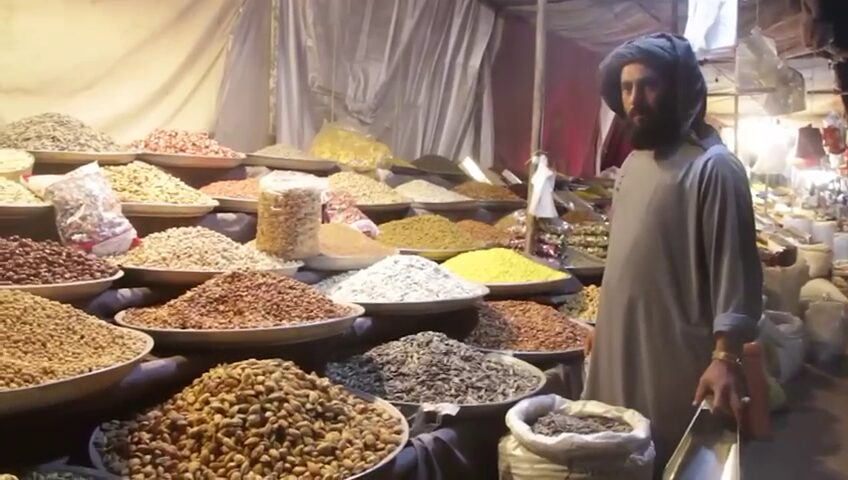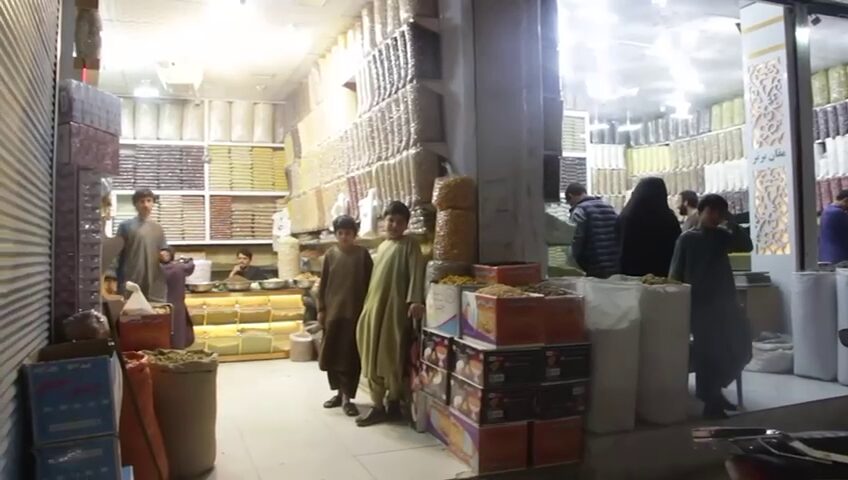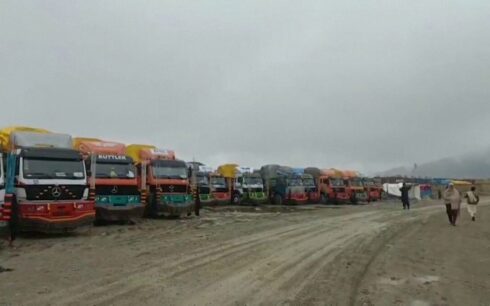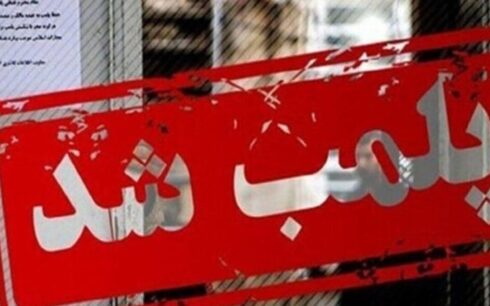In the western province of Herat, dry fruit vendors report a decline in sales this year, despite lower prices, compared to previous years.
Herat residents and dry fruit sellers said that economic hardship and ongoing poverty prevent some from affording dry fruits and other Eid preparations.
Eid celebrations, deeply rooted in tradition for Afghans, typically feature a spread of dry and fresh fruits along with traditional teas.

However, Herat’s worsening economic situation, marked by a rising unemployment rate, has led many residents to scale back or forego the customary Eid spread, opting instead for more affordable items.
Abdullah, a Herat resident, expressed the dire circumstances faced by many: “When there is no money, what can a person buy? The people cannot even afford bread. You and I both know people who cannot afford to buy bread, most of them are poor. But out of a thousand people, there might be ten who have good financial standing.”
Concerns about escalating unemployment and deepening poverty were echoed by residents, noting a year-over-year increase in joblessness. “Unemployment is increasing year by year. Last year was better; this year, more people are unemployed again. It’s rising yearly. When unemployment increases, people buy less. There’s no work, and people’s conditions are worsening,” Abdullah added.

Dry fruit sellers, like Farhad Sharifi, are also feeling the pinch, citing a lack of a robust market for their products. “Everyone buys based on their ability. Some can afford premium items like pistachios and nuts, while others opt for basic items like chickpeas and raisins. Some have no choice but to pick the cheapest options,” Sharifi explained.
Mahmoud Hamidi, another dried fruit vendor, noted the year’s sales downturn: “This year’s sales aren’t like previous years, even though prices have decreased.”
Eid al-Fitr is celebrated worldwide by Muslims with various customs and traditions, marking the end of Ramadan.





